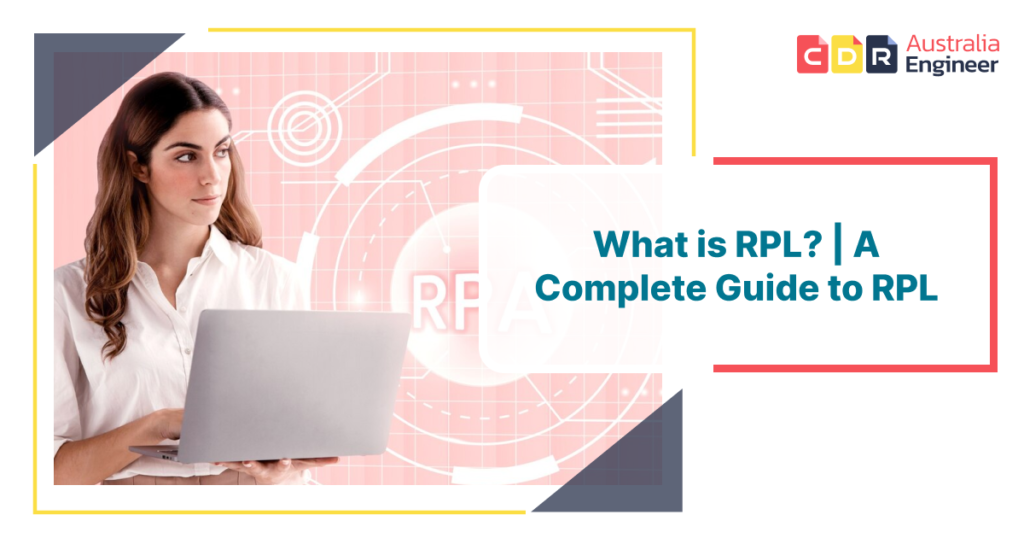

💥🥂 NEW YEAR GRAND DISCOUNT — Save up to 35% on Our Services. Offer Ends at 1st week of Jan
RPL stands for Recognizance of Prior Learning, an initiative where individuals may obtain formal recognition for skills and experiences acquired outside traditional educational settings. Such recognition could apply toward qualifications, certifications or credits that typically require formal study.
What is RPL ? It is an educational assessment process that recognizes and assesses an individual’s skills, knowledge, and competencies acquired through work experience, informal training or life experience rather than traditional academic pathways. RPL allows higher education institutions to recognize your existing understanding, knowledge and abilities before enrolling you into programs or modules – this way no duplicative learning takes place! Furthermore, this process eliminates duplication so you won’t need to relearn things you already understand!

RPL is increasingly being implemented across many fields, from vocational and higher education, to ensure learners receive recognition and credit for their existing abilities and knowledge. Prior learning can be acquired in various ways and is best divided into three categories.
RPL allows learners to build upon what they’ve learned and be rewarded accordingly, for instance, with access to a course or exemption/credit on specific modules in a programme.
RPL is used in various sectors – vocational and higher education – to ensure learners receive recognition and credit for existing knowledge and abilities.
By applying RPL, you can gain recognition from higher education institutions for prior learning from work, life, and the community, which can serve as a pathway into and through higher education. RPL itself can be seen as an educational process as it involves reflecting upon past experiences and documenting what you’ve learnt – then having relevant learning assessed against a standard to ensure it can be acknowledged by an institution for recognition by applicants for:
Higher education institutions may use RPL to award total academic awards; whether this option is available depends on each institution.
RPL can be advantageous to learners, higher education institutions and employers alike. By making visible the valuable skills and learning experiences people have acquired through work or life experiences, RPL can boost self-esteem and well-being for all involved parties. RPL is an essential aspect of lifelong learning and widening participation for higher education institutions, making programmes more accessible to learners who do not meet minimum entrance requirements but possess relevant prior informal or non-formal learning experiences. An acceleration program can speed a learner’s progress through their course by offering advanced entry or exemption. Studies in higher education demonstrate how RPL significantly benefits an institution’s relationships with industry partners by creating customized learning solutions suited specifically to employee skill sets and organizational requirements.
CDRaustraliaengineer specialises in high-quality CDR, RPL and VETASSESS reports for engineers. CDRaustraliaengineer offer low-cost, customized and reliable services in diverse engineering disciplines.

Creating a CDR Report may be difficult due to Engineers Australia’s standards and rules ( EA ). Our experienced engineers have assisted many people in obtaining approval for their report from the EA via the use of powerful projects.
The application process typically consists of five stages. They include:
RPL may also be utilized to obtain full academic awards at some higher education institutions; the specifics of each institution’s policy will determine this.
Applications for RPLs are evaluated based on a number of factors, including program entrance requirements and module learning objectives. When making their RPL applications, applicants will typically provide evidence proving they have met these outcomes or in the case of program entry requirements demonstrating they are sufficiently prepared for that course of study. Quality assurance standards apply similarly in this respect across all of an institution’s programs.
Suppose an application is denied (e.g. not granted an exemption or accepted into a program/course of study via RPL). In that case, all available options and support will be discussed with them, including accessing any existing appeals procedures, which will also be made known to them.